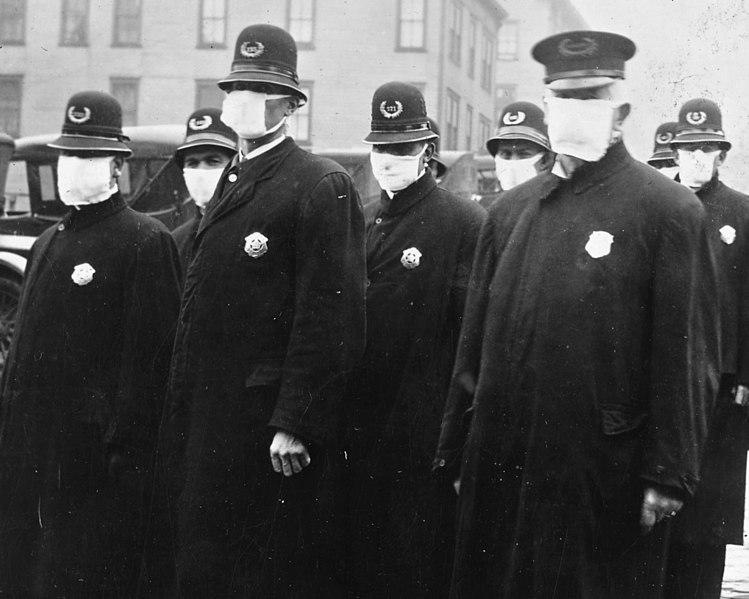
The Covid-19 pandemic is accelerating three fundamental geopolitical trends: the rise of Asia, the decline of the United States, and the strengthening of Germany within Europe. Combined, these shifts may well prefigure the world of 2030. But, before then, political leaders must overcome the current crisis—and not repeat the catastrophic errors of a century ago.
Today, the future and the past seem to be colliding. Now that Covid-19 has brutally thrust much of the world into the digital economy, many people won’t wish to return to the pre-pandemic world as if what we’re now experiencing had been a mere blip.
The virus doesn’t signify the end of globalisation, but it’s probably a bad omen for a certain variety of it. For example, will leaders still want to attend the World Economic Forum’s annual meeting in Davos and mingle in a dense crowd of peers, rather than networking in ways that respect social-distancing norms in the face of a deadly virus?
But above all, the pandemic is confirming the ascent of Asia—not just China—and the decline of the West, and the US in particular.
By far the world’s strongest military power, America was singularly disarmed when confronted with the novel coronavirus. The country’s healthcare system couldn’t cope with the scale of the pandemic (although the US was hardly alone in that regard), while the long lines of people patiently waiting to receive food handouts evoked images of the Great Depression prior to the New Deal. And America’s political leaders, caricatures of brutality and opportunism, have simply made things worse, further tarnishing the country’s international image in the process.
True, America may recover part of its dignity and humanity by tossing President Donald Trump aside in November’s presidential election. But that will require Democrats to unite behind their presumptive nominee, Joe Biden, as former president Barack Obama emphasised when recently endorsing him.
Biden has a real chance of winning. US voters may well punish Republicans for their blundering response to the pandemic and the consequent economic devastation, just as South Korean voters recently rewarded President Moon Jae-in’s ruling party with an absolute parliamentary majority, following his administration’s so-far successful efforts to contain the coronavirus. But even if Trump is defeated, America won’t recover the central global position it occupied for three-quarters of a century.
America’s decline, however, doesn’t mean that China will carry the global torch. Covid-19 has just as ruthlessly exposed China’s flaws, including its government’s lack of transparency. The outbreak there fuelled a dramatic economic collapse in the first quarter of 2020, and the country remains vulnerable to a second wave of the pandemic. All of this suggests that the world may be becoming non-polar, rather than bipolar.
Neither Russia nor the European Union can pretend to fill the gap at the top. Like Iran and Turkey, Russia may well emerge weaker from the crisis. In fact, President Vladimir Putin may have far more to fear from Covid-19 than he does from Russia’s enfeebled opposition parties.
After a very uncertain initial response to the pandemic—to put it mildly—the EU seems to be regaining some clout thanks to a trio of women leaders: German Chancellor Angela Merkel, European Commission President Ursula von der Leyen and European Central Bank President Christine Lagarde. But this crisis has mainly demonstrated Germany’s strength rather than Europe’s resilience.
Despite being Europe’s most populous country, Germany has registered at least three times fewer deaths than its main EU peers, while Merkel, who until recently was widely seen as a lame-duck leader, enjoys higher trust ratings than any other European leader. She has proven that a politician can follow their ethical instincts—as she did in opening Germany’s borders to migrants in 2015—and still be seen five years later as the best protection against fear and uncertainty.
If history is indeed accelerating as a result of Covid-19, we still have to look to the past to draw the right lessons. And the pivotal year in this case is 1920.
A century ago, in the immediate aftermath of World War I and the devastating Spanish flu pandemic, political leaders proved incapable of finding the right answers to the huge challenges they faced. As a result, the world fell first into the Great Depression and then into World War II.
Today’s leaders are confronted by different but equally daunting challenges. In particular, they have to strike a delicate balance not only between protecting their citizens’ lives and restarting the economy, but also between liberty and security.
If governments go too far in prioritising the economy over public health, they run the risk of a second Covid-19 wave that would have devastating consequences for both. Likewise, if they champion liberty above all else, and ignore the contribution of tracking technologies to taming the pandemic in Asia, for example, they risk that one day, less prudent and moderate political forces may apply libertarian principles brutally and with total disregard for public welfare.
In the 1920s and 1930s, pacifism born out of a terrible war contributed to the victory of fascism and an even more horrific global conflict. Today, we must not allow economic greed or libertarianism to take us down an equally disastrous path.